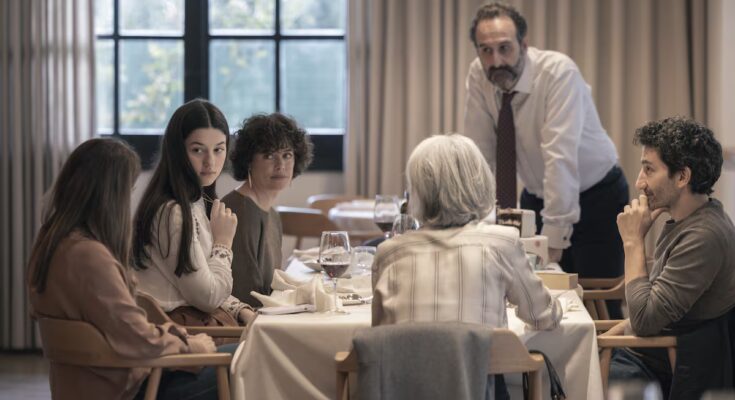It was winter 2021 and we were supposed to go to the Monastery of the Incarnation that Sunday. When we started living in Ávila, my partner and I also started going to mass, every weekend in a different church. I had just finished another liturgy in which I had forced us to sit as far back as possible, I hadn’t gotten up from the pew even once and I hadn’t attempted to recite a single prayer.
After the priest’s blessing, most of the parishioners left the temple, but some headed towards a chapel located in the side nave and we followed them. On the right side there was a small room with some bars and, behind them, a group of cloistered nuns lined up. They held a book in their hands as they sang and the fall of the dress did not allow their faces to be seen. As the ceremony progressed, we realized that it was the dressing of a young barefoot Carmelite. Even if to me, a fourth generation atheist, what seemed like a Sorrentino film; I couldn’t stop doing zoom on the parents’ faces to try to guess the sadness or remorse in their gestures.
That ceremony seemed to me to be one of the most inexplicably beautiful things I had ever seen, but also a tragedy: a girl my age who decided not to be a doctoral student, not to take an exam, not to start a business and advertise it on Instagram, not to be an employee, not to be a mother, not to be a user of Ryanair, Tinder or the Zara app. A girl my age who decided not to live.
I return to that barefoot Carmelite whose name I never knew when I saw her Sundaysthe film with which Alauda Ruiz de Azúa won the Golden Shell of San Sebastián. There are those who say that it is not a film about religious vocation but about family, and they are right: no one has managed to capture the complexity of being a father, daughter or grandmother like Ruiz de Azúa in recent years. But the fact is that the director did not decide that the conflict will break out because the girl wants to go to Berlin to study art, nor because she came out of the closet in a conservative family: she chose to make everything revolve around the religious vocation of Ainara, a 17-year-old teenager, and the frontal opposition of her aunt, a cultural manager with relationship problems who believes that locking yourself in a convent with a group of old women is not living but escaping from life.
Like many viewers of the film and like me that day in La Encarnación, Ainara’s aunt believes that her niece’s decision to become a nun is not a free one. Which is conditioned by her experiences and her wounds – the premature death of her mother, a father who is not very present – as if her own decisions were not conditioned. As if every vital commitment – every serious vital commitment – did not arise from lack and its gaps. Would you have felt that desperation, that annoyance, if your niece had decided to become an ADE and had started working 14 hours a day as a junior at Deloitte? You would have suffered until you lost control if Ainara had announced that she was going to India to learn ashtanga yoga and doing coils with Lululemon clothes?
Sundays It’s a good film because it’s not easy to give a synopsis of it, to decide whether it’s about religious or family vocation, intolerance of the tolerant or spiritual manipulation. What is certain is that it is about meaning, about love. And what happens when it crosses us or misses us. When we see it, or when we are blind to it.



